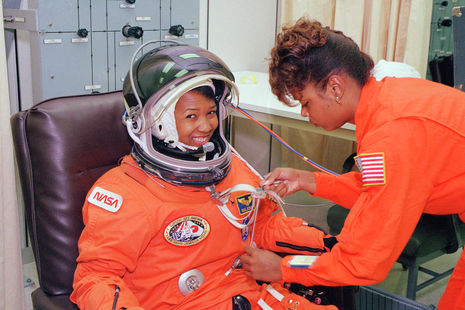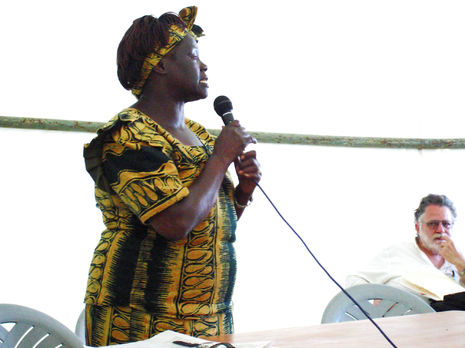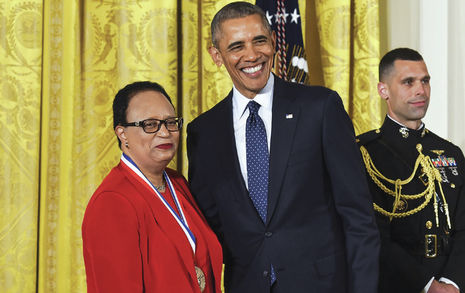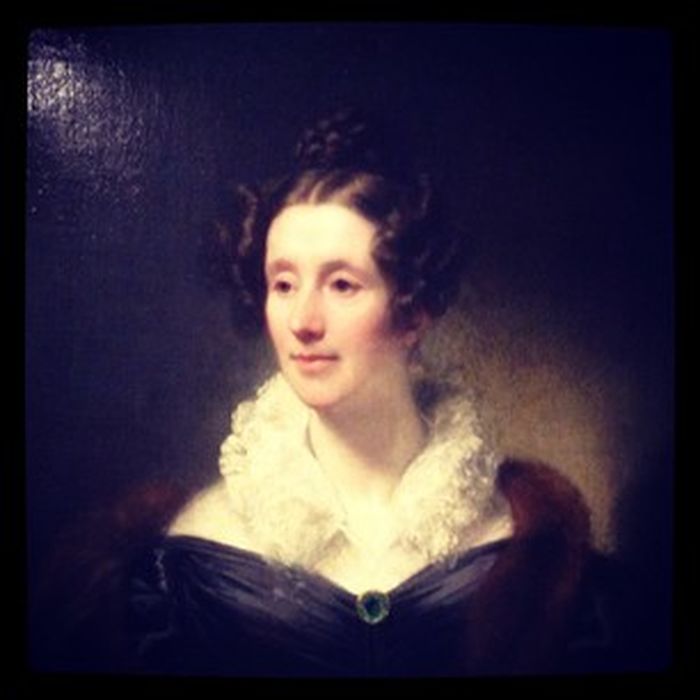10 Black female scientists everyone should know about
From Marie Maynard Daly to Maggie Aderin-Pocock, Grace Blackshaw explores the work of ten Black female scientists you might not have heard of, but definitely should have.

Scrolling through a list of famous scientists, it’s pretty obvious science has a diversity problem. Galileo Galilei, Isaac Newton, Michael Faraday, Charles Darwin, Albert Einstein, Neils Bohr, Stephen Hawking – notice a pattern?
It’s important to remember that not all scientists are white men – others just don’t make it into our textbooks nearly as often as they should. Here are 10 Black female scientists, engineers, mathematicians, and healthcare professionals everyone should know about.
Marie Maynard Daly
Marie Maynard Daly was an influential biochemist and the first Black woman to earn a PhD in Chemistry in the US. Born in 1921, Daly completed her undergraduate degree at Queens College, her master’s at New York University, and her PhD at Columbia University. She then worked with Quentin Deming on arterial metabolism, exploring the links between high cholesterol, clogged arteries and increased risk of heart attacks. She also worked on protein synthesis and the chemistry of histones.
Wangari Maathai

Wangari Maathai was a biologist, environmental activist, and the first woman in Africa to earn a PhD. Born in 1940, Maathai grew up in Kenya, until she received a scholarship to study Biology in the US. In 1969, she returned to Kenya to begin her PhD in Veterinary Anatomy at the University of Nairobi. Despite her pioneering academic record, Maathai is best known for her environmental activism. In 1977, she founded the Green Belt Movement, focusing on tree planting, environmental conservation, and women’s rights. In 2004, Maathai became the first African woman to receive the Nobel Peace Prize.
Patricia Bath
Patricia Bath is an inventor and ophthalmologist. Born in 1942, Bath grew up in Harlem, New York, studied Chemistry at Hunter College, and completed her medical training at Howard University. She then worked at the Harlem Hospital Center, focusing on finding treatments for blindness and other visual impairments. In 1988, Bath patented a probe that used a laser to quickly and painlessly remove cataracts. Bath also wrote about higher rates of blindness among African Americans and co-founded the American Institute for the Prevention of Blindness.
Shirley Ann Jackson

Shirley Ann Jackson is an influential American physicist. In 1964, Jackson started studying Physics at the Massachusetts Institute of Technology and, in 1973, she completed her PhD in Nuclear Physics, becoming the first Black woman to earn a PhD from MIT. As a postdoctoral researcher, she continued her work on subatomic particles, first at Fermilab in Illinois, and then at the European Organisation for Nuclear Research in Switzerland. She also served as chair of the Nuclear Regulatory Commission and has always been a passionate advocate for women and minorities in the sciences.
Elizabeth Anionwu
Professor Dame Elizabeth Anionwu is a British nurse and professor at the University of West London. Born in Birmingham in 1947, Anionwu had a turbulent childhood and spent 9 years in care. When she was 16, she left school and started working as a school nurse assistant. Later, she continued her education to become a nurse. In 1979, she set up the first UK sickle cell centre. Throughout her career, Anionwu has advocated for minority communities affected by genetic disorders and campaigned for the work of 19th-century nurse Mary Seacole to be recognised.
Alexa Canady
Alexa Canady was the first black female neurosurgeon in the US. She completed her bachelor’s degree in Zoology at the University of Michigan and stayed on to study Medicine. In 1981, she completed her residency at the University of Minnesota and began specialising in Pediatric Neurosurgery. During her career, she saved and improved the lives of countless young people. She also carried out research on treating children with traumatic brain injuries and prenatal brain conditions.
Francisca Okeke
Francisca Okeke is a Nigerian physicist and the first female Head of Department at the University of Nigeria. Okeke studied Physics at the University of Nigeria, where she remained for her PhD in Ionospheric Geophysics. She is perhaps best known for her pioneering work on the equatorial electrojet phenomenon, a narrow ion current in the ionosphere above the equator. In 2013, she won a L’Oreal-UNESCO award for her work on this phenomenon, which highlighted its potential to “further our understanding of climate change.”
Mae Carol Jemison

Best known as the first Black woman to travel to space, Mae Carol Jemison is an American engineer, physician and astronaut. Born in 1956, Jemison graduated from Stanford with a degree in Chemical Engineering and went on to study Medicine at Cornell. She then spent 2 years as a Peace Corps medical officer in Sierra Leone and Liberia. Upon her return to the US, Jemison changed career and, in 1987, was admitted to the NASA astronaut training program. On 12 September 1992, Jemison became the first Black woman to travel to space, where she spent just under 8 days orbiting the Earth.
Kathleen Okikiolu
Kathleen Okikiolu is a renowned British mathematician. Born into a mathematical family, Okikiolu first studied Mathematics at the University of Cambridge, before moving to the University of California to complete her PhD on the analogue of the strong Szego limit theorem on 2- and 3-dimensional spheres. She also resolved Peter Jones’ conjecture on a continuous version of the travelling salesman problem. In 1997, she became the first Black person to win a Sloan Research Fellowship, the most prestigious prize for young mathematicians in the US.
Maggie Aderin-Pocock
Maggie Aderin-Pocock is a British space scientist and science communicator. Born in London in 1968, Aderin-Pocock completed her undergraduate degree in Physics and her PhD in Mechanical Engineering at Imperial College London. She then spent 3 years working for the UK Ministry of Defence, before going back to academia, where she worked on a high-resolution spectrograph for the Geminin telescope in Chile. Throughout her career, Aderin-Pocock has been passionate about outreach and science communication. She has presented numerous BBC TV programs, including In Orbit and The Sky at Night.
–
Finally, while it’s important to celebrate the incredible achievements of Black female scientists such as these, it’s also important to remember that the lack of diversity in science is a result of much more than just underreporting. White male scientists dominate more than just our textbooks. Globally, women account for less than 30% of all employees working in scientific research and development. In the US, Black women make up 6.4% of the population but less than 2.5% of science and engineering employees.
We need to do more than just recognise the contributions of women and underrepresented minorities to the scientific community. We need to make it easier for others to follow in their footsteps.
 News / Report suggests Cambridge the hardest place to get a first in the country23 January 2026
News / Report suggests Cambridge the hardest place to get a first in the country23 January 2026 Comment / Cambridge has already become complacent on class23 January 2026
Comment / Cambridge has already become complacent on class23 January 2026 News / Students condemn ‘insidious’ Israel trip23 January 2026
News / Students condemn ‘insidious’ Israel trip23 January 2026 Comment / Gardies and Harvey’s are not the first, and they won’t be the last23 January 2026
Comment / Gardies and Harvey’s are not the first, and they won’t be the last23 January 2026 News / Cambridge ranks in the top ten for every subject area in 202623 January 2026
News / Cambridge ranks in the top ten for every subject area in 202623 January 2026










